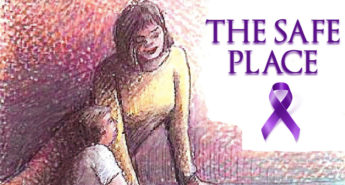 As you may have read in our previous blog, Effects of Domestic Violence, Part 1: Children , domestic violence affects millions of children each year. It is reported that in homes where there is partner violence, there is a 45% to 60% chance that the child is also being abused. If the child is not being abused, they are witnessing 68% to 80% of the assaults that are going on in the house. Parents often think their kids are not witnessing the abuse, so they are not affected by it, but in reality, they have seen it and now have side effects. In this blog, we will be talking about how domestic violence effects school aged children and teens. Many of the side effects are similar to the young children, but they can be harder on older kids who know more about exactly what is going on.
As you may have read in our previous blog, Effects of Domestic Violence, Part 1: Children , domestic violence affects millions of children each year. It is reported that in homes where there is partner violence, there is a 45% to 60% chance that the child is also being abused. If the child is not being abused, they are witnessing 68% to 80% of the assaults that are going on in the house. Parents often think their kids are not witnessing the abuse, so they are not affected by it, but in reality, they have seen it and now have side effects. In this blog, we will be talking about how domestic violence effects school aged children and teens. Many of the side effects are similar to the young children, but they can be harder on older kids who know more about exactly what is going on.
According to New South Wales Government, school aged children who are exposed to abuse or abused themselves seem to have a harder time developing proper relationships. Kids who see abuse tend to be more aggressive and have antisocial behaviors. Because of this, they may think that being mean is a way to make friends, when in reality it pushes all their friends away. They also usually suffer when it comes to academic performance.
There are several reasons this may be the case, one of them being their parents fought all night and they were not able to get any sleep or they had to skip breakfast and get to school in a hurry. Many kids who experience domestic violence also tend to have lower verbal, cognitive, and motor skills and have a hard time focusing in school. These, along with other learning difficulties, means children often suffer in the school setting. Studies have also shown that they have problems with their emotional stability. It has been found that they have more anger and don’t know how to properly deal with it; this leads to oppositional behavior (a pattern of anger and defiance toward authority figures). Most of the time, they also suffer from low self-esteem, low self-worth, and emotional distress.
Teens have many of the same problems when experiencing domestic violence, but they tend to be a little worse. Their emotional distress turns into ongoing anxiety and depression. They also have trouble forming positive personal relationships, they are more likely to develop insomnia or phobias, and tend to self-harm. They have also been found to have more physical symptoms such as headaches or stomach pains. If they continue to stay in a violent home and don’t seek help, they are also more likely to turn to substance abuse or be in a violent relationship when they get older. They are also more likely to get in fights with friends or family members and they tend to skip school all together.
Those who are physically or sexually abused are at a higher risk of emotional and psychological problems. They also are more likely to engage in risky behaviors and experience or use controlling and manipulative patterns in their adult relationships.
Domestic violence is a cycle,
but it is not too late to break it for your children.
If you have been a victim of domestic violence and there are children involved, it is not too late to get out and help them avoid these problems. For help, call The Safe Place at 501-354-1884, our crisis line at 1-888-554-2501, or our Perryville office at 501-889-2030 for more information. Our lines are staffed 24/7.
References:
https://www.facs.nsw.gov.au/domestic-violence/about/effects-of-dv-on-children




Leave a Reply